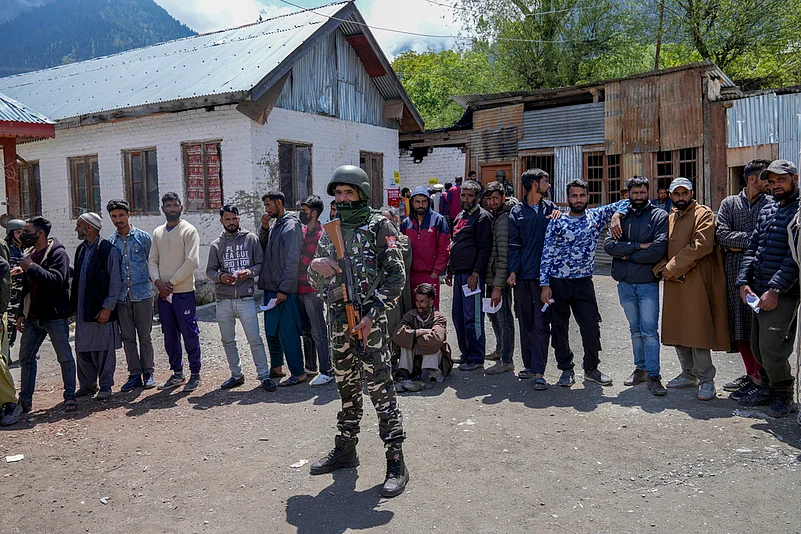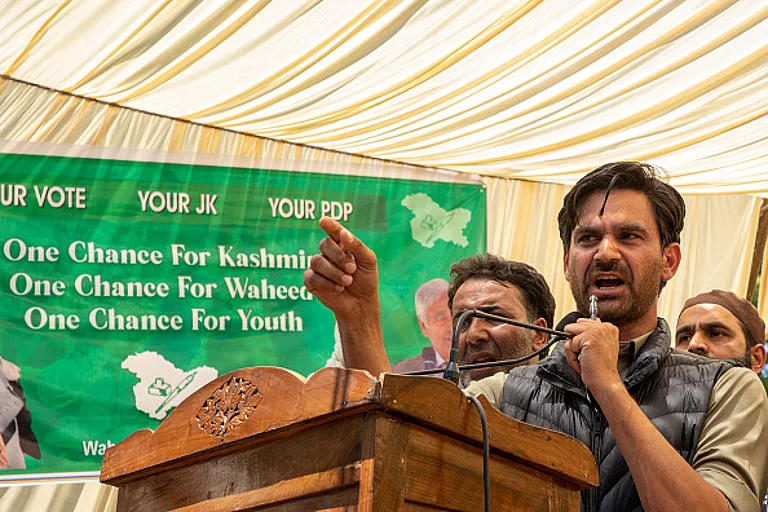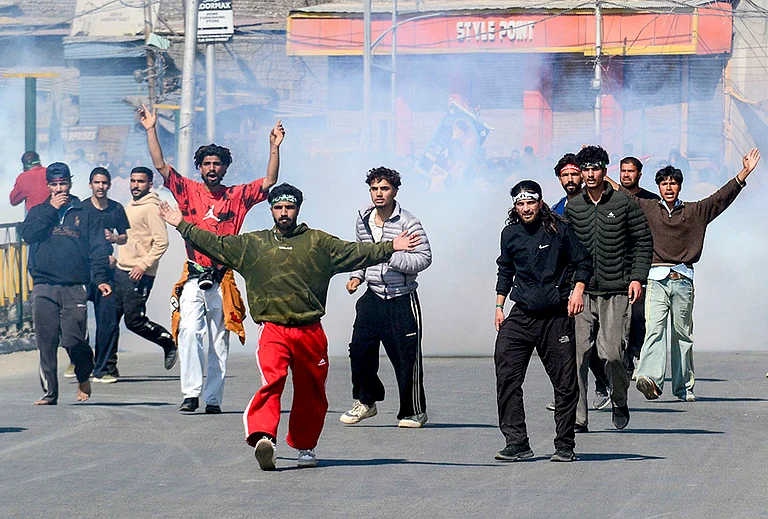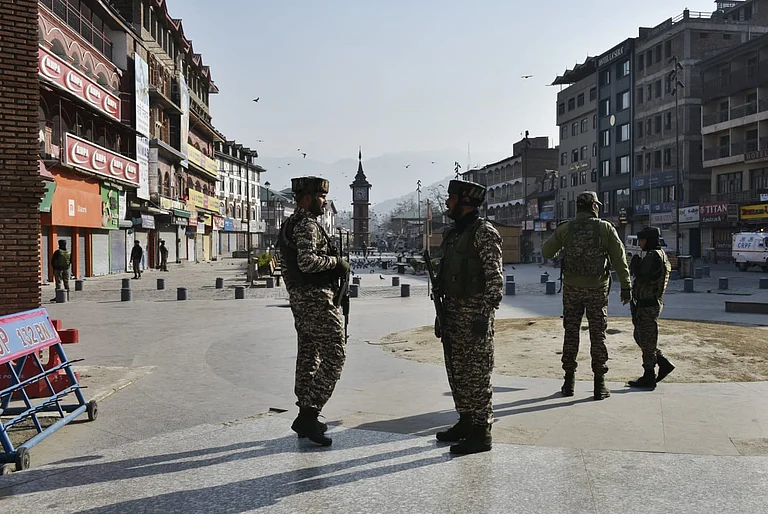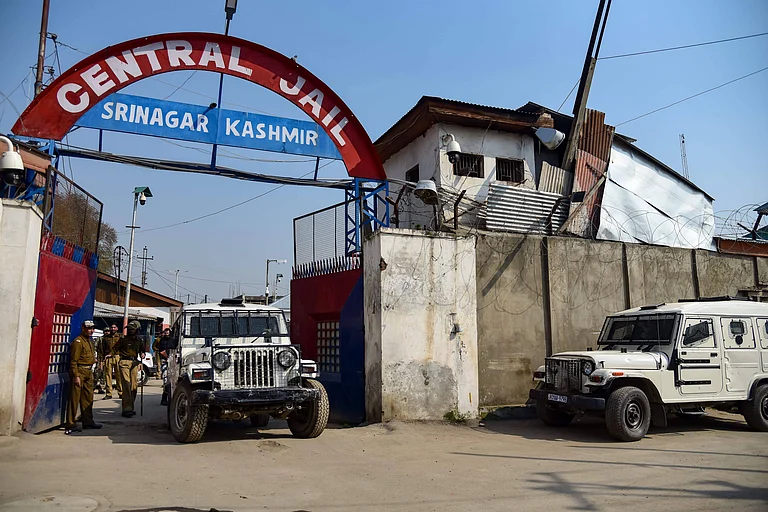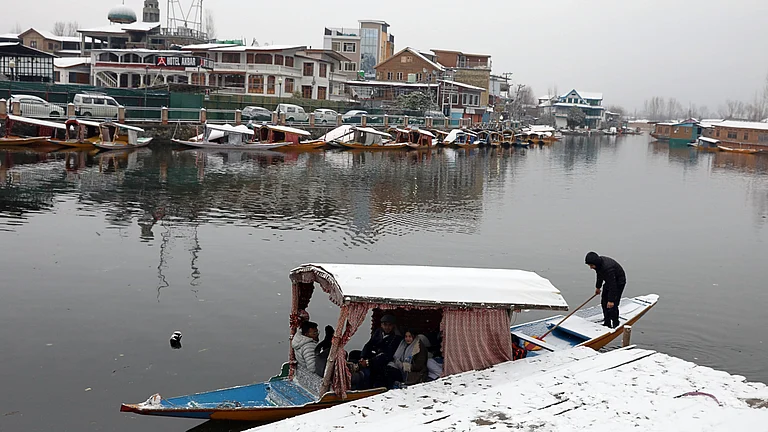On May 13, shops in almost all five districts of the Srinagar constituency were closed, and the roads were unusually quiet. Traffic was off the road. No one knew exactly why, but it seemed as if people were treating the polling day as a holiday. Children turned the empty roads into cricket pitches.
Outside the polling booths, groups of youngsters and elderly had gathered in front of closed shops, engaged in deep conversation. The usual atmosphere of fear and heavy security, which often dominated elections in the Kashmir region, was absent this time. Instead, there was a peaceful air.
In Pulwama's main chowk, voters steadily entered the higher secondary school building to cast their votes. Unlike previous elections, voters arrived on their own, in personal vehicles, and with smiles on their faces. The atmosphere was one of quiet excitement, making this election day stand out from those before.
This was the first major election after the abrogation of Article 370. The Bharatiya Janata Party, which abrogated Article 370 on August 5, 2019 amid siege, communication blackout and arrest of thousands, did not contest the election, choosing not to field any candidates. Ironically, party leaders have been canvassing, urging voters to support any party other than the National Conference, the People's Democratic Party, or the Congress.
A retired government employee stood outside the booth in Pulwama mainchowk after voting early. “I have been voting all along. This time my family, and relatives and neighbours are also coming to vote. That makes this election different.”
However, a university student, voting for the first time, shares a different perspective. He used to stay outside the polling station, jeering at those who voted. "Those were different times. These are different times. Voting now is about expressing oneself," he adds. "I've never seen this level of acceptance of voting in my entire life," he says.
While the contesting candidates, National Conference’s Aga Syed Ruhullah Mehdi and Peoples Democratic Party’s candidate Waheed-ur-Rehman Parra, talk about the "illegal" abrogation of Article 370, people are mostly concerned about the repercussions of Article 370, and are seeking job security, land security, and the opportunity to express themselves. “Only one vote has been cast in this polling booth in the past,” locals in the region said. At 12 pm, long queues were seen outside the polling booth with the women queue longer than the male queue. No voter was hiding their face.
A government employee said if the parliamentary elections are conducted fairly, about 80 per cent of voters will turn up for the upcoming Assembly elections. He hoped the number will double in the September Assembly elections. He believed that in accordance with the Supreme Court decision, the elections in Jammu and Kashmir will be held before September 2024.

On December 11, 2023, the Supreme Court upheld the abrogation of Article 370 as “constitutionally valid”, giving only consolation to the petitioners, who were mostly regional political parties, to direct the ECI to hold elections by September 2024 in J&K. As Article 370 has remained the core of the NC’s political ideology, on the basis of which the party was formed, the party leaders now say the battle is not just a legal fight but a political fight too as earlier judgments had declared Article 370 as a permanent Article. Omar Abdullah has been saying that the restoration of statehood wasn't an issue as it will be restored as has been promised by the Home Minister and the Prime Minister. He says his and his party's fight is for Article 370.
In Karmiabad, Pulwama, once a hub for separatist activities, many people cast their votes on May 13. Outside the polling booth, there was a large gathering of first-time voters who seemed to enjoy the experience. One youth said that life in Kashmir has become tough. "Many youngsters from our area are in jails. There are no job opportunities. We hope our representative will address these concerns," he said.
While most people prefer not to talk about the past when they refrained from voting due to separatist calls and ideological reasons, many argue that times have changed. Now, having local representatives is seen as essential for addressing their issues.
In the old city, like elsewhere in Kashmir, shops were shut, and youngsters were playing on the roads as there was no traffic. However, the number of voters at polling stations in Srinagar district was lower than in other districts.
A 35-year-old voting for the first time, while wishing to stay anonymous, said, "I believe having local representatives is essential to address the concerns of the people.”
"I was eligible to vote in the 2019 elections, but I didn't vote. Now, we have been turned into a Union Territory, with all decisions being made by the central government. I want to have our own government and regain statehood," he added.
As the fourth phase of voting concluded on May 13 in Srinagar constituency, the five districts of Srinagar, Ganderbal, Pulwama and Budgam and Shopian recorded a voter turnout of 37.99 per cent.
The corresponding percentage for last Lok Sabha election in 2019 was 14.43 per cent. This time, there was no boycott and no polling station recorded zero per cent or nil voting, the Chief Election Officer of J&K said.
The polling took place in 2,135 polling stations across the Srinagar Parliamentary Constituency.
The gross voter turnout recorded in past few elections in the Srinagar was 14.43 per cent in 2019, 25.86 per cent in 2019, 25.55 per cent in 2009, 18.57 per cent in 2004, 11.93 per cent in 1999, 30.06 per cent in 1998, 40.94 per cent in 1996, no election was held in 1991 due to turmoil and 1989 remained uncontested. The highest ever poll percentage since the eruption of militancy in Kashmir was recorded in year 1996 with 40.94 per cent. In 1996, large scale coercion was reportedly seen with the security agencies forcing people out to vote, which makes the present elections different.
During the polling, PDP spokesman Mohit Bhan took to social media to allege that the EVM machines in polling booths were working slowly and the process was not being facilitated properly. Bhan accused the government of potentially repeating the mistakes of the 1987 Assembly polls, which were allegedly rigged and led to insurgency.
National Conference president Dr Farooq Abdullah, along with Omar Abdullah and Omar’s two sons, Zahir and Zamir, who were first-time voters, had cast their votes together at the Burn Hall School. "We have two first-time voters with us. It is for the first time that three generations of our family are voting together," Omar said. He also said that NC workers and polling agents were detained ahead of the polling and kept in police stations. The ECI has not responded to the allegations so far.


